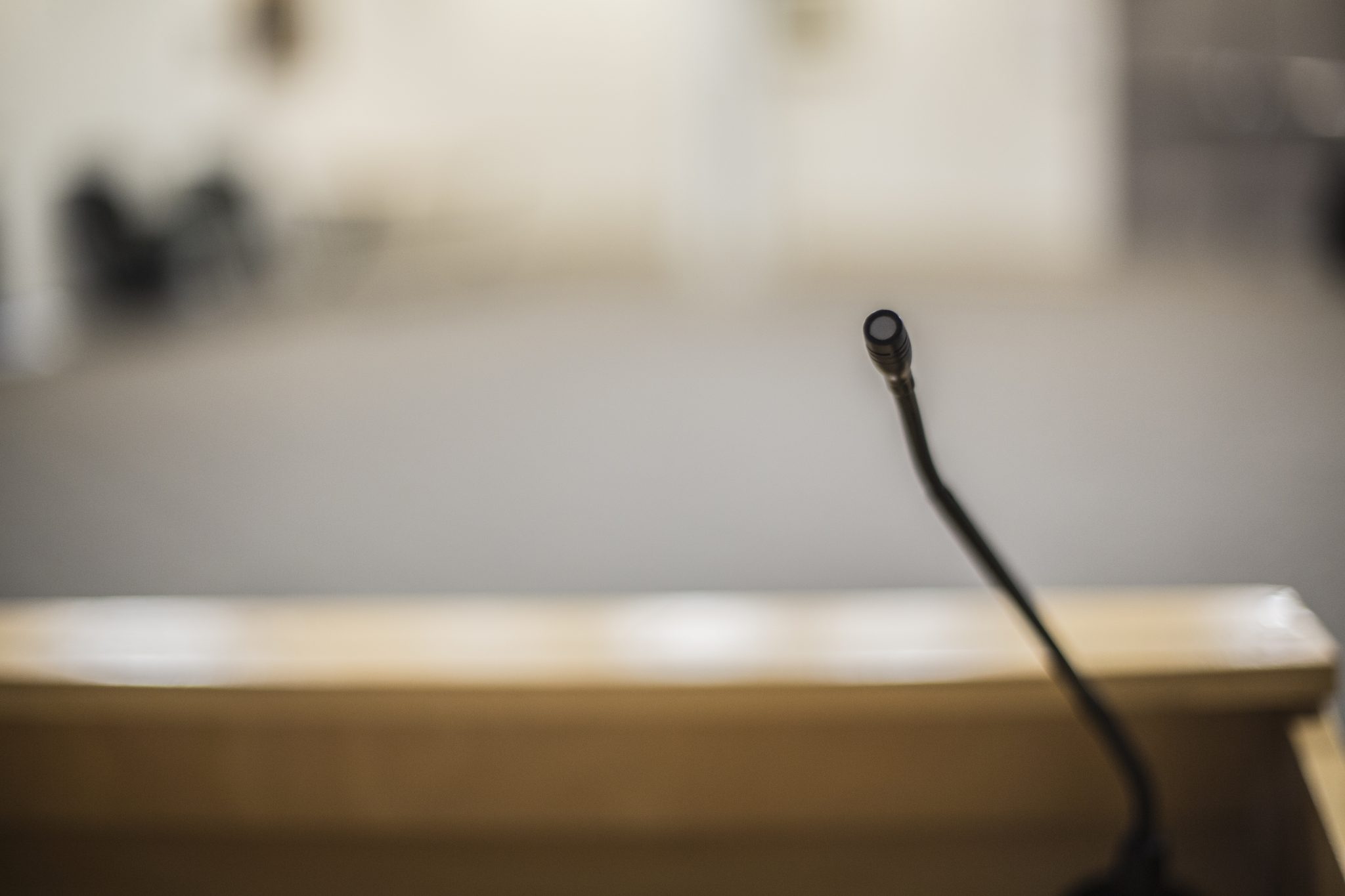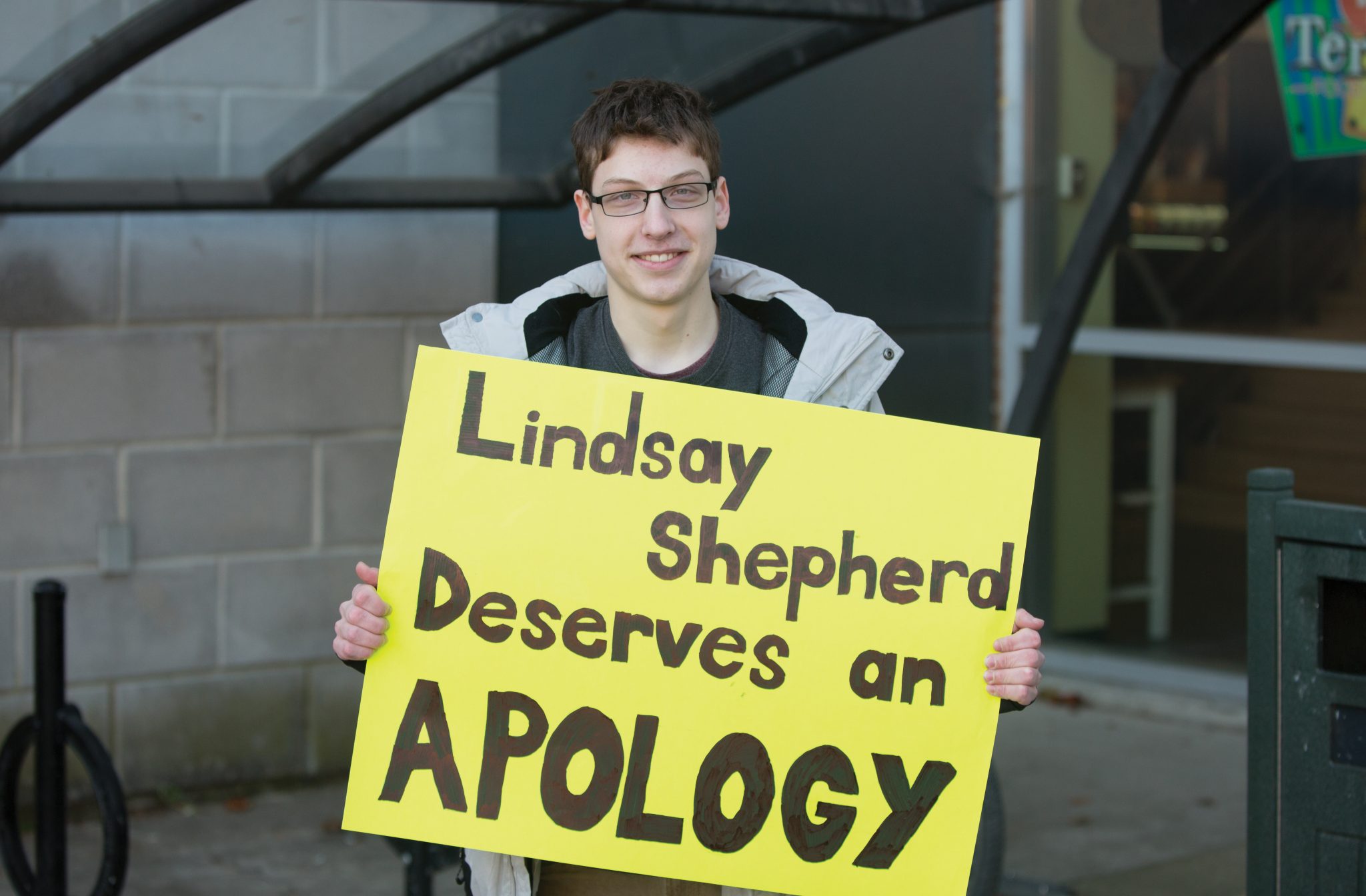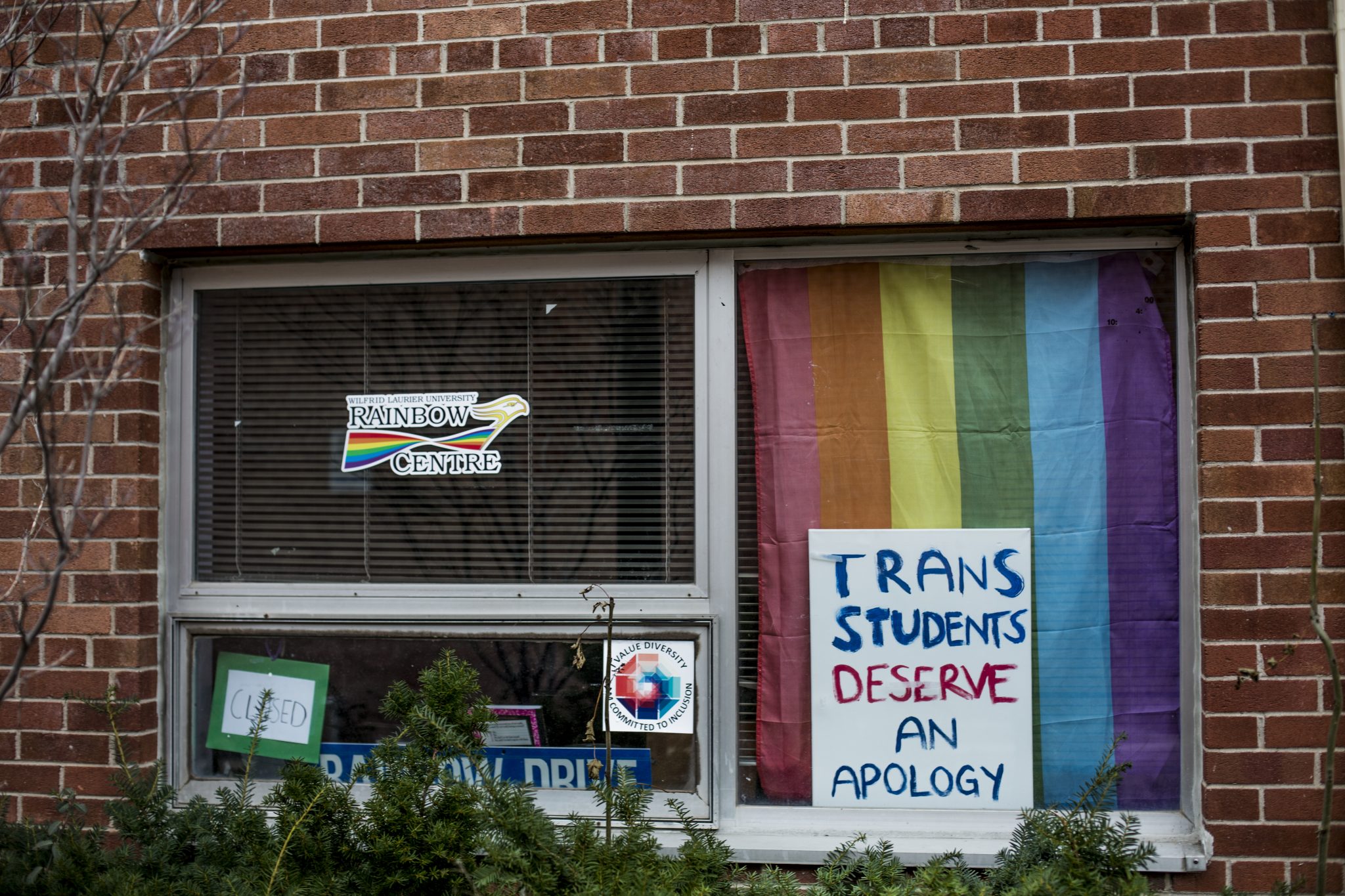Laurier TA Lindsay Shepherd makes national headlines and receives formal apology from President MacLatchy

Over the past week, Wilfrid Laurier University’s responses to the actions of Laurier teaching assistant, Lindsay Shepherd, have gone viral, making national headlines on various media outlets.
Shepherd took her story to the media after concerns were raised over her decision to show a Jordan Peterson debate video from a neutral standpoint.
It became known last week that Shepherd secretly recorded her 35-minute-long meeting with her supervising professor, Nathan Rambukkana, assistant professor in communication studies at Laurier, Herbert Pimlott, associate professor in communication studies at Laurier and Adria Joel, manager of gendered violence and prevention and support at Laurier’s Diversity and Equity Office.
The meeting took place after a student or students — the number of complaints could not be confirmed due to confidentiality purposes — raised concerns over her decision to show a video of Peterson from a neutral standpoint.
On Monday Nov. 20, The Cord acquired a ten-minute segment of the recorded meeting, available below via Global News:
In the segment, Shepherd is heard defending her decision to show the clip of Jordan Peterson by reiterating the neutral stance she took within the tutorial.
“I don’t see how someone would rationally think it was threatening. I can see how it might challenge their existing ideas but, for me, that’s the spirit of the university, is challenging ideas that you already have,” Shepherd said in the recording.
As Shepherd claimed, the three individuals in the meeting condemned her actions by claiming that her decision to show the clip not only caused harm to the student or students who complained, but that she also created a toxic climate.
Furthermore, Joel is heard iterating to Shepherd that her actions violated Laurier’s Gendered and Sexual Violence Policy by “causing harm to trans students by [presenting] their identify as invalid or their pronouns as invalid.”
“If you’re presenting something like this, you have to think about the kind of teaching climate that you’re creating … these arguments are counter to the Canadian human rights code,” said one of the three individual present at the meeting.
Rambukkana is also heard comparing Shepherd’s actions to those of white-supremacists and to “neutrally playing a speech by Hitler.”
However, Shepherd continued on by stating that she did not understand how her decision ultimately reprimands her as transphobic.
“In a university, all perspectives are valid,” Shepherd said to the three individuals.
“That’s not necessarily true,” one of the individuals replied back to her.
“What’s funny is I disagree with Jordan Peterson. I disagree. But you guys think I’m like pro Jordan Peterson,” Shepherd said in the meeting.
On Nov. 21, Josh Leibold, first-year computer science and communications student at Laurier, protested outside of Laurier’s Fred Nichol’s Campus Centre, holding a poster “Lindsay Shepherd deserves an apology.”

“I think that the university’s response to Lindsay Shepherd wasn’t acceptable. I think that since she remained neutral to an idea that she shouldn’t be condemned for it,” Leibold said.
“I think that because it’s so close to us and Peterson has a large following, it’s not like it’s some niche idea that’s never been supported or is factually incorrect. I think it’s relevant and, for that, bringing up a relevant topic, neutrally, should be something expected of a university.”
On Nov. 21, ensuing the public release of the meeting’s recording, both Deborah MacLatchy, president of Laurier, and Rambukkana released public apologies to Shepherd.
“After listening to this recording, an apology is in order. The conversation I heard does not reflect the values and practices to which Laurier aspires. I am sorry it occurred in the way that it did and I regret the impact it had on Lindsay Shepherd. I will convey my apology to her directly. Professor Rambukkana has also chosen to apologize to Lindsay Shepherd about the way the meeting was conducted,” MacLatchy’s statement read.
To read both statements in full, click here.
As stated in MacLatchy’s apology, Laurier has hired a third independent party to gather and assess facts of the situation in order to review the situation going forward. In addition, MacLatchy has assembled a task-force to further delve into issues surrounding both protection of speech and protection of students. Details of the task-force are said to be announced shortly.
“I do appreciate the apology,” Shepherd said. “But with that being said, it was their only option to apologize.”
Shepherd said that since the situation was publicized, she has received hundreds of emails from Laurier alumni and other individuals who have allegedly told Shepherd they will be ceasing to provide donations to Laurier and will not be recommending Laurier to potential students.
“This university was on a route to self-destruction,” Shepherd said.
“The university’s reputation is still permanently damaged I would say … an apology was their only option. It was damage control … they have made no long-term commitment to saying that it’s okay to talk about anything in the classroom.”
Although Shepherd explained that the release of the recording comes with its risks, she feels the risk has been worth the outcome as a result of the quantity of positive support she has apparently received.
After Leibold was spotted holding his protest sign in front of Fred Nichol’s Campus Centre, the WLU Rainbow Centre posted a similar sign on their window reading “Trans people deserve an apology.”

The Rainbow Centre also released a statement to The Cord, which begins as follows:
“By shifting the conversation from transphobia to freedom of speech, President MacLatchy has failed to address the very real impacts of these debates on trans students. The discourse of freedom of speech is being used to cover over the original problem, which is, that being required to engage in these debates constitutes a form of epistemic violence against trans people…”
However, Shepherd said she stands firm in her stance that a university should be able to discuss controversial topics despite the possibility that it might offend an individual or a group of individuals.
“So trans people are upset that we can’t debate things in the classroom … that seems a little absurd. This was not about trans issues — that was what people took out of it — but the primary thing about this is just controversy in general,” Shepherd said.
“What they’re doing by [posting that sign] is suggesting that being trans is opposite of wanting to have free speech. It doesn’t really make any sense … trans people are just normal people who want academic freedom too. Why do you have to have one or the other?”
The Rainbow Centre’s statement continued on to address this type of standpoint:
“Characterizing these debates as “polarizing” is a misrepresentation of the incredible inequity on which they are founded, requiring trans people to defend their humanity against arguments that invalidate their experiences of gender. Silencing the voices of trans people in this context only compounds the transphobic violence which has been inherent in this discussion and has created an environment in which trans students fear to speak out against transphobia. Moving forward, we would like to see inclusion of trans voices at all stages of the institution’s response and a commitment to upholding the safety of trans students who are being impacted by transphobia.”


